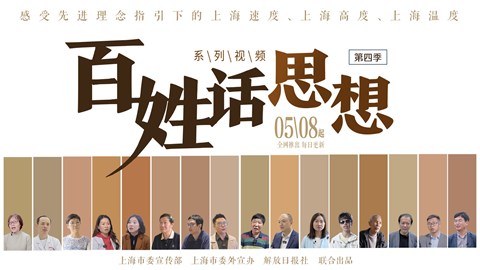Coffee, milk tea or Goji berries: health impacts from a TCM perspective
How many cups of coffee will you drink today? And do you like all varieties of milk tea available around every street corner? Shanghai now boasts the most coffee shops globally and milk tea stalls are offering ever-evolving flavors and addictive qualities.

It's coffee time!
As a TCM doctor, I have been asked by many people during consultation about different body reactions after drinking coffee and milk tea. They wonder why they get more easily agitated, why they cannot have deep sleep, why their energy level changes like a rollercoaster, or why they feel like being sucked away … all symptoms possibly triggered by a cup of coffee or milk tea.
In western medicine, there are enough academic articles to tell you the pros and cons about drinking coffee. I am not going to retell you the old news stories and list the data. Instead I would like to invite you to see the food and drink we imbibe from another angle rather than researching the beneficial bio-chemical elements.
Traditional Chinese medicine considers that all foods are the creation of Heavenly Qi and Earthly flavor. There are four Qi: warm, hot, cool and cold resonating with the four seasons' natural transformation; there are five flavors: sour, bitter, sweet, pungent and salty, which are generated from the earth from five directions: East, South, Middle, West and North.
If the food comes through the natural process, it will have the natural heavenly Qi and earthly flavor. We call it "Four Qi, Five Flavor" theory. Qi is constantly moving, it is rising in Spring, vaporizing in Summer, sinking in Autumn and hibernating in Winter. Every creation synchronizes with this natural regulation and there are no exceptions.
The food we eat and our human body goes through this movement process as well. Different Qi and flavors have their own nourishing and therapeutic functions. If we know them, we can be our own doctor by using food as medicine according to the time, the place we live and who we are as a unique constitution of a human body.

Food for thought
Let's go back to coffee or black tea. According to the "Four Qi, Five Flavor" theory, coffee's Qi is warm, the main flavor is bitter, a little sour and pungent. The bitter flavor has the function of drying, resolving the dampness and purging down. The sour flavor has the absorbing, consolidating and astringent function. The pungent flavor can disperse and promote the Qi and blood circulation. Therefore coffee causes three main reactions in our body: 1. Warms up the kidney and bladder to facilitate passing of the urine, raises the Yang energy to boost you up; 2. Strengthens the spleen and dries the dampness; and 3. Stimulates the heart and clears up the brain.
However, is it suitable for everyone? The answer is: No. Just like each food has its unique nature, human bodies are different constitutions as well, based on the time and space you were born and where you are living now. If you have Yang deficiency syndromes like feeling cold and sluggish, suffering with edema, or your diet contains more meat and dairy products, coffee might be a fit for you. But if you are in the Yin deficiency state with syndromes like inner dry and hot sensations, night sweat, dry/sore throat and mouth, ear singing, and slim tongue, coffee will make you feel worse, the palpation might accelerate, your appetite may go down and cause nausea, your head might feel dizzy and your body will be constantly in the dehydrated state etc.
As we know, milk tea is a staple in the Inner Mongolia, Xinjiang or Tibet diet; it is very good for heavy meat eaters to digest the food. But if you try to follow Pamela Reif's simple diet, milk tea might create a fragile spleen and stomach. In general, green tea and Wulong tea is relatively cool in nature, milk's Qi is cold. Adding them together will create a damp inner environment and strengthen the possibilities of getting diarrhea or loose stools. So, choose wisely based on your own eating habits, body state and the nature of the food.

A cup of coffee
The key in taking TCM as your guidance is through the Qi and Flavor of the food or drink to get your body back to the Yin & Yang balance. And be aware of the season and your surrounding environment, whether you can sense the Qi is rising or sinking, the dryness or dampness. When you are alert enough to the natural dynamic changes of the environment and your body's inner ecosystem, then the time is right to make a cup of drink or cook a meal, JUST FOR YOU.

Goji berry drink.
Here I would like to introduce a simple formula for this spring's Qi and Flavor: Take Goji berries, rose petals, chrysanthemum flowers and dried tangerine or orange peel, mix them, put into a regular tea cup, and pour boiling water into it. Wait 3-5 minutes. When the temperature goes down, you can enjoy it. I cannot say it will suit YOU perfectly, but all of us in Shanghai right now are living in the similar outer environment. The Qi is rising, and it is relatively damp amid comparatively more rains in this period. This means there are more chances of getting sore throat, feeling sleepy and experiencing stagnation. This formula can serve as a base for your spring drink, which will boost your energy and mood while keeping you calm. So rest easy.
Stay tuned, more Health & Lifestyle tips from the Chinese perspective are on the way.
The author is from Shanghai Qigong Research Institute. Her research and teaching field is traditional Chinese health preserving and cultivating regimens, including Qigong and meditation in the context of Chinese culture. She is a Dance Movement Therapist trained in the western Movement system as well.















